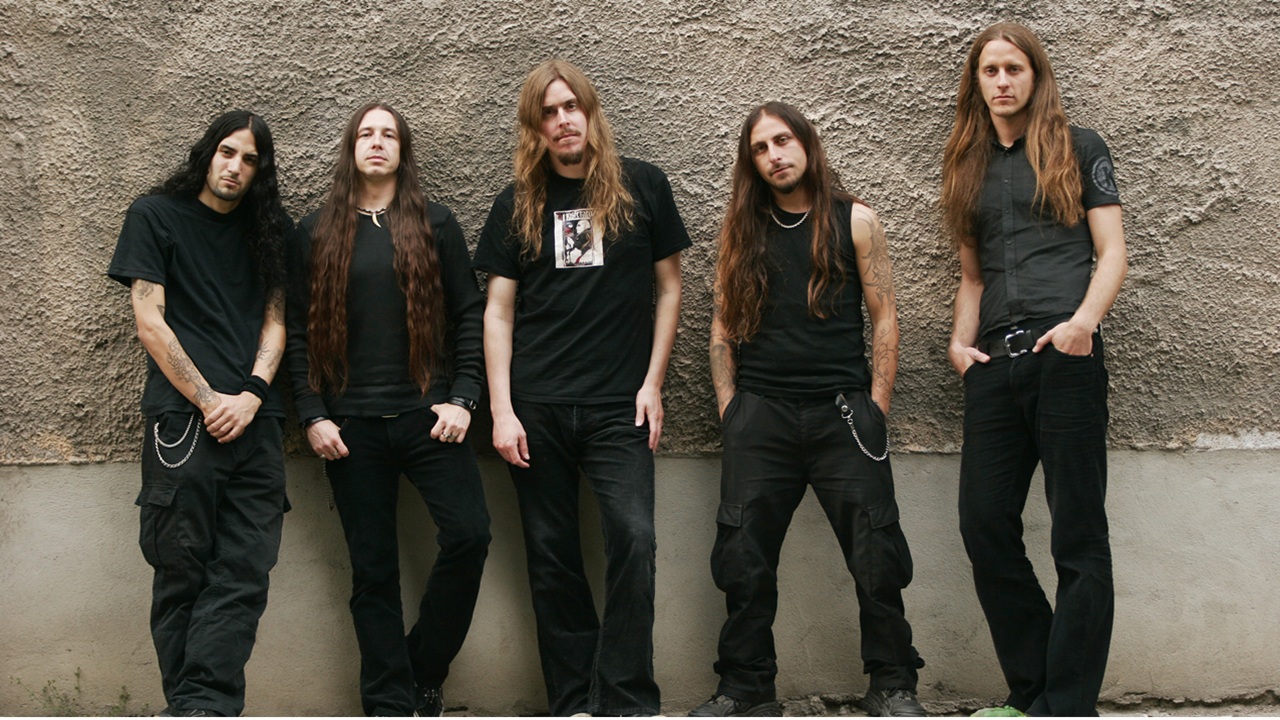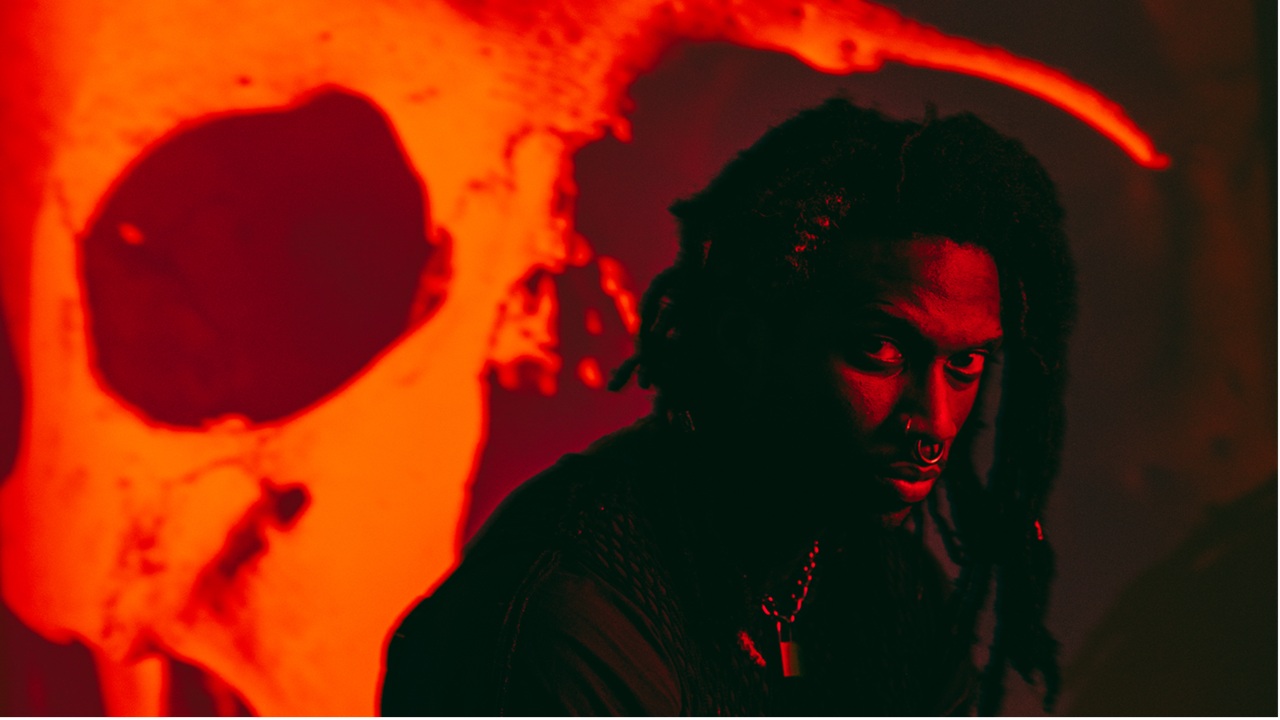"You want a smack in the face in the beginning." How Ghost Of Perdition went from a concept about Satanism to the defining Opeth anthem
Opeth might've ditched the concept record idea for Ghost Reveries, but Ghost Of Perdition still tells a story

Select the newsletters you’d like to receive. Then, add your email to sign up.
You are now subscribed
Your newsletter sign-up was successful
Want to add more newsletters?

Every Friday
Louder
Louder’s weekly newsletter is jam-packed with the team’s personal highlights from the last seven days, including features, breaking news, reviews and tons of juicy exclusives from the world of alternative music.

Every Friday
Classic Rock
The Classic Rock newsletter is an essential read for the discerning rock fan. Every week we bring you the news, reviews and the very best features and interviews from our extensive archive. Written by rock fans for rock fans.

Every Friday
Metal Hammer
For the last four decades Metal Hammer has been the world’s greatest metal magazine. Created by metalheads for metalheads, ‘Hammer takes you behind the scenes, closer to the action, and nearer to the bands that you love the most.

Every Friday
Prog
The Prog newsletter brings you the very best of Prog Magazine and our website, every Friday. We'll deliver you the very latest news from the Prog universe, informative features and archive material from Prog’s impressive vault.
When you think of Opeth – a band who’ve dealt in grand, 10-minute-plus songs for three decades now – ‘immediacy’ isn’t the first thing that comes to mind. But that’s exactly what the Stockholm adventurers were striving for when they penned Ghost Of Perdition.
After just eight gentle guitar strums, the first track on 2005’s Ghost Reveries plummets into a death metal hellscape, with Mikael Åkerfeldt abruptly howling, ‘Ghost of mother! Lingering death!’
“It’s a common trick in the metal world to have one of the heavier, more hard-hitting songs open a record,” Opeth’s self-deprecating but confident singer/guitarist/songwriter admits. “It’s not super-original, but it was deliberate. I still have a tendency to think like that when we put out records. You want a smack in the face in the beginning.”
Of course, Ghost Of Perdition goes on to become far more than some brainless rager. From that striking introduction, it blossoms into one of the band’s defining odysseys, moving from deathly force to prog metal jamming and a hummed, acoustic ditty, before rising to a climax of might, grunts and soloing. All the while, every bit of it boasts an addictive melody, be it through the cascading guitar chords or Mikael’s hum-along vocalising.
The end result is one of Opeth’s most beloved achievements, boasting 20 million Spotify streams (the band’s third-biggest number on the platform), without it even coming out as a single back in the day. Mikael reacts almost dismissively to its success: “It’s a great song, but I think [its success] was because it’s first on the record.”
The goodwill towards Ghost Of Perdition will be reiterated just a couple hours after Hammer sits down with the frontman. We’re talking in-person ahead of Opeth’s sold-out show at the Roundhouse in London, where 3,300 people will go apeshit to the song’s immense start before singing many of Mikael’s lines back to him. At the time of writing, it’s been performed live nearly 500 times.
“We have played it live a lot,” he acknowledges. “It packs a punch, that song, and it’s kind of dynamic. It has the softer section with the choir vocals, and it has odd time signatures and both styles of vocals [singing and screaming]. It’s got it all. It’s the quintessential Opeth song, in a way.”
Sign up below to get the latest from Metal Hammer, plus exclusive special offers, direct to your inbox!
From the outside looking in, in the lead-up to Ghost Of Perdition and Ghost Reveries as a whole, Opeth’s world couldn’t have seemed better. 2001’s Blackwater Park had become their breakthrough, and then Deliverance and Damnation demonstrated the extent of their range, one disc handing out progressive death metal beatdowns while the other featured dark, clean-sung prog rock.
Plus, in May 2005, the band announced their signing with Roadrunner Records: then-home to Slipknot, Machine Head and other modern greats.
“That felt like a big step up,” Mikael remembers of the move. Were they excited because of the stacked roster at the time, or perhaps because of the death metal legends, such as Obituary and Deicide, that they signed in the 90s? “No,” he answers matter-of-factly. “It was because they once had Mercyful Fate.”
Behind the scenes, however, Opeth’s line-up was splintering. Mikael alludes to a widening schism – himself on one side, guitarist Peter Lindgren and drummer Martin Lopez on the other – which crushed much of the morale during Ghost Reveries’ production. Within two years of the album’s release, Peter and Martin were both out of the band. When we ask about the nature of this tension, it’s literally brushed off, Mikael grazing the back of his hand across our knee as if to emphasise his non-answer.
“You shouldn’t pry, because I won’t say anything.”
Can he at least clarify whether it was personal or professional? “It wasn’t personal,” he responds without pause. “We were close, very close, up until the end.”
Because of the internal drama, Mikael says he loved writing Ghost Reveries but felt “ass” while recording it. As he’d done for some time by that point, he came up with the album’s lyrics and music entirely in isolation.
“I knew that, if the band were to break up or something, I wouldn’t stop,” he explains. “I wanted to continue. I had great ideas, and I’m not going to let anything get in the way. Nobody’s going to take charge other than me. They were all waiting for me to write stuff and I was willingly doing it.”
Like the other songs on Ghost Reveries, Ghost Of Perdition was composed in chunks, two or three riffs pouring out of Mikael at a time and being sorted into a whole later on.
“I can’t remember if I even recorded a demo of the whole song,” he reveals. “It was just bits and pieces, then I put it together with other bits and pieces. I remember the first riff in Ghost Of Perdition, that was pretty early on. It may have been the first one I did.”
While the arrangement was patchwork, Mikael hoped to be more cohesive with the lyrics. He initially planned Ghost Reveries to be a concept album, narrating the journey of a once-Christian protagonist who becomes more and more enamoured with Satanism. Ultimately though, he didn’t stick the landing.
“All of the songs are kind of connected, apart from the last song, Isolation Years,” he says. “I just wrote a lyric I liked and a song I liked. So I decided, ‘Whatever. People aren’t gonna understand the concept anyway, might as well fuck it up myself.’”
Nonetheless, Ghost Of Perdition still starts the main character’s descent towards darkness, chronicling the death of his mother.
“All he can see is misery and pain and sorrow and death. So he starts questioning his upbringing, his faith.”
Opeth didn’t rehearse Ghost Reveries’ songs together before they entered Sweden’s Fascination Street Studios to record with producer Jens Bogren. The then-unseasoned prospect – now known for his work with Kreator, Amon Amarth and many more – replaced Porcupine Tree lynchpin Steven Wilson, Mikael’s friend and mentor who co-produced Blackwater Park, Deliverance and Damnation.
“I think we probably asked Steven [to be involved in Ghost Reveries],” Mikael half-remembers. “But I’d learned many of his tricks along the way. I could hear some ideas in my head that I like to think he would have brought up. I was becoming a producer more and more, and by the time we did Ghost Reveries, I could just tell, ‘Yeah, I want this thing to happen, I want this effect.’”
Jens’ fresh perspective made Opeth’s leader realise the extent of the turmoil within the band, and the pair ended up co-captaining the sessions. Keyboardist Per Wiberg was the newbie making his recording debut and even bassist Martín Méndez, today Mikael’s second-in-command with 28 years of service, was a “background figure”.
“It was just chaotic,” Mikael reflects. “I felt completely alone and I felt weight on my shoulders. Like, ‘If I don’t make this happen, it’s just going to fall to pieces and there won’t be anything coming out.’ Jens saw the shitty dynamic that the band had in many ways, and kind of sided with me.”
Once recording wrapped, Ghost Reveries’ big-label backing meant a lead single and a music video were needed, with second-to-last track The Grand Conjuration eventually getting picked. Cut in half to give it an MTV-friendly run-time and accompanied by a “shitty” video (Mikael’s words), it became something of a career standout, but its stature is by no means comparable to Ghost Of Perdition. Although it appears the wrong horse was backed, Mikael has no regrets.
“I left that decision in the hands of the label,” he shrugs. “Both songs are quite long and would need editing, and The Grand Conjuration is more samey than Ghost Of Perdition. It was easier to edit, and at the time – because I was like, ‘OK, maybe things are happening for us now with this record’ – I let them pick the song. They went for The Grand Conjuration because they needed to have it on the radio.”
Ghost Reveries came out on August 29, 2005, to rave reviews, and saw the band reach number nine in Sweden: their first time on their country’s charts. At the end of the year, Hammer named it the best album of 2005. Mikael calls the touring to promote the release “relentless” and, even though Opeth lost Peter and Martin, by the time they started thinking about their follow-up album, Watershed, all those nights playing Ghost Of Perdition had cemented the song as a fixture of their catalogue.
“What makes me happy is when people say, ‘Ghost Of Perdition was the first Opeth song I heard and I fell in love immediately,’” says Mikael. “I think that it’s a good song to start with.” With a slight grin, he can’t help but enjoy one last bit of self-deprecation. “I’m not good with compliments, though. I only believe people when they say negative shit."

Louder’s resident Gojira obsessive was still at uni when he joined the team in 2017. Since then, Matt’s become a regular in Metal Hammer and Prog, at his happiest when interviewing the most forward-thinking artists heavy music can muster. He’s got bylines in The Guardian, The Telegraph, The Independent, NME and many others, too. When he’s not writing, you’ll probably find him skydiving, scuba diving or coasteering.
You must confirm your public display name before commenting
Please logout and then login again, you will then be prompted to enter your display name.

